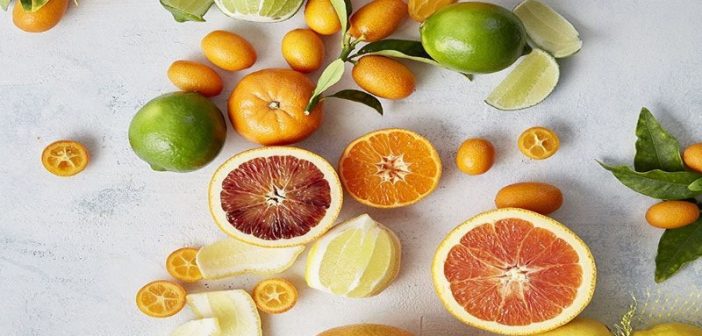You’ve probably heard about how important it is to get vitamin C in your diet to stay healthy. It’s one of the essential nutrients. But do you really know how it benefits your body?
Take a look at the foods high in vitamin C below.
Guava
“One cup of guava contains a whopping 377 milligrams of vitamin C,” says Claire Virga, registered dietitian, RD, MS, CDN, of Rooted Wellness in The U.S. “Both the rind and seeds of the guava fruit are edible, and in fact, the rind of guava is loaded with vitamin C and has even more vitamin C than an entire orange!” Valerie Agyeman, women’s health dietitian Agyeman, RD, founder of Flourish Heights in the U.S. adds that the fruit is also rich in lycopene, which may help fight off certain cancers. ♦
Bell Peppers
“Bell peppers of all varieties are great sources of vitamin C,” Virga says. “Red bell peppers have the highest vitamin C content and are the sweetest in flavor because they stay on the vine the longest. Green bell peppers are harvested earliest and therefore have less vitamin C than the red and yellow varieties yet are still a great source of vitamin C.” Agyeman says one-half cup of sweet yellow peppers delivers 152% of the recommended DV and may improve eye health and protect against cataract progression.
Oranges
This might be the first fruit that comes to mind when you think of vitamin C. Virga says eating one medium orange provides 70 milligrams of vitamin C, which is almost 100% of what women need daily.
Strawberries
“One cup of strawberry halves (152 grams) provides 89 milligrams of vitamin C, or 99% of the DV,” Agyeman says. “This nutritious fruit may help your heart and brain health.”
Brussels Sprouts
Carter says a half-cup of cooked brussels sprouts contains 48 milligrams of vitamin C per serving.
Tomatoes
One medium tomato provides 28% of your daily vitamin C needs, but Virga suggests giving tomato juice a try, too. “Tomato juice concentrates the nutrients and therefore packs a much higher vitamin C punch,” she says. “One cup of tomato juice provides close to 74% of your daily vitamin C needs.”
Broccoli
“One-half cup of steamed broccoli provides 57% of the DV for vitamin C and may lower your risk of inflammatory diseases,” Agyeman says. Overall, cruciferous vegetables like broccoli, brussels sprouts, and bok choy are good for you. Virga says the nutritious produce contain glucosinolates, which are compounds that have an anti-cancer effect within the body.
Pineapple
One cup of pineapple chunks gives you about 131% of your daily vitamin C needs, Virga says. The fruit also contains bromelain, which is an enzyme that helps digest protein.
Papaya
Agyeman says one cup of papaya delivers 87 milligrams of vitamin C and is known to help improve memory.
Lemons
Just a tablespoon of lemon juice gives you 40% of your daily vitamin C needs. Virga recommends adding a squeeze of lemon juice to water or salads as a way to boost your intake and add some flavor.
Kiwi
Agyeman says a medium-size kiwi provides 79% of the daily recommended value for vitamin C and that the fruit can benefit circulation and immunity. It’s also a source of the natural mood stabilizer serotonin, adds Virga.
Potatoes
Yes, they’re a great source of vitamin C. “Potatoes get a bad rap, but they are actually full of nutrients like vitamin C and potassium,” Virga says. “It is the way potatoes are often prepared (e.g., deep-fried or slathered in butter) that makes them a less than nutritious choice.”
Mangoes
One cup of mangoes has about 60 milligrams of vitamin C, according to Virga. ♦




